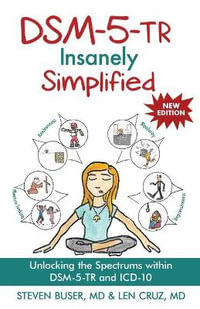This book is written not only (or even primarily) for sociologists, psychologists, or other "social service professionals," but also for curious and literate students and lay people. I have tried to make it accessible to the ordinary person. Most of all, it is written for those having direct experience of the psychiatric enterprise. The book as a whole is intended to show how psychiatric work creates patterns of interaction between the staff and residents that routinely poses the question, "Who's crazy?" on both the individual and societal levels. In chapter one, the author argues that social-constructionist methods ought to be wed to critical theory in studying social problems. Chapter two details the nature of psychiatric intervention into residents' lives in terms of how these practices infl uence their social status and personal identities. In chapter three, staff families and social backgrounds, cultural orientations, and the relationships between these dimensions and avenues into psychiatric work are described and analyzed. Chapter four is concerned with comparative analysis of "unusual experiences" as defi ned and described by residents and staff. In chapter fi ve, direct skirmishes between staff and residents over the nature and location of the border between "sanity" and "insanity" are described and analyzed. The concluding chapter reviews major points from the descriptions and analyses comparing residents and staff in the preceding four chapters.
Industry Reviews
-Mirrors of Madness makes good reading. Luske vividly illustrates how fuzzy the border is between the normal and the insane by juxtaposing interviews with residents and staff and then challenging the reader to make a diagnosis... [T]his work provides a wise note of caution to the current enthusiasm for sociobiomedical research on mental disorder.-
--Suzanne T. Ortega, Social Forces
-Staff in a psychiatric hospital alter their own behaviors to protect against the danger of considering themselves mentally ill or providing grounds for others to so frame them. That is Bruce Luske's thesis, and he provides persuasive evidence from his eighteen-month participant-observer study to support it. The phenomenon he dubs -reverse role modeling- is an important contribution to the Goffmanian literature on psychiatric institutions, as is Luske's specification of the dualistic accounts staff use to confirm the otherness of patients.-
--Barry Glassner, Contemporary Sociology "Mirrors of Madness makes good reading. Luske vividly illustrates how fuzzy the border is between the normal and the insane by juxtaposing interviews with residents and staff and then challenging the reader to make a diagnosis... [T]his work provides a wise note of caution to the current enthusiasm for sociobiomedical research on mental disorder."
--Suzanne T. Ortega, Social Forces
"Staff in a psychiatric hospital alter their own behaviors to protect against the danger of considering themselves mentally ill or providing grounds for others to so frame them. That is Bruce Luske's thesis, and he provides persuasive evidence from his eighteen-month participant-observer study to support it. The phenomenon he dubs "reverse role modeling" is an important contribution to the Goffmanian literature on psychiatric institutions, as is Luske's specification of the dualistic accounts staff use to confirm the otherness of patients."
--Barry Glassner, Contemporary Sociology "Mirrors of Madness makes good reading. Luske vividly illustrates how fuzzy the border is between the normal and the insane by juxtaposing interviews with residents and staff and then challenging the reader to make a diagnosis... [T]his work provides a wise note of caution to the current enthusiasm for sociobiomedical research on mental disorder."
--Suzanne T. Ortega, Social Forces
"Staff in a psychiatric hospital alter their own behaviors to protect against the danger of considering themselves mentally ill or providing grounds for others to so frame them. That is Bruce Luske's thesis, and he provides persuasive evidence from his eighteen-month participant-observer study to support it. The phenomenon he dubs "reverse role modeling" is an important contribution to the Goffmanian literature on psychiatric institutions, as is Luske's specification of the dualistic accounts staff use to confirm the otherness of patients."
--Barry Glassner, Contemporary Sociology

























